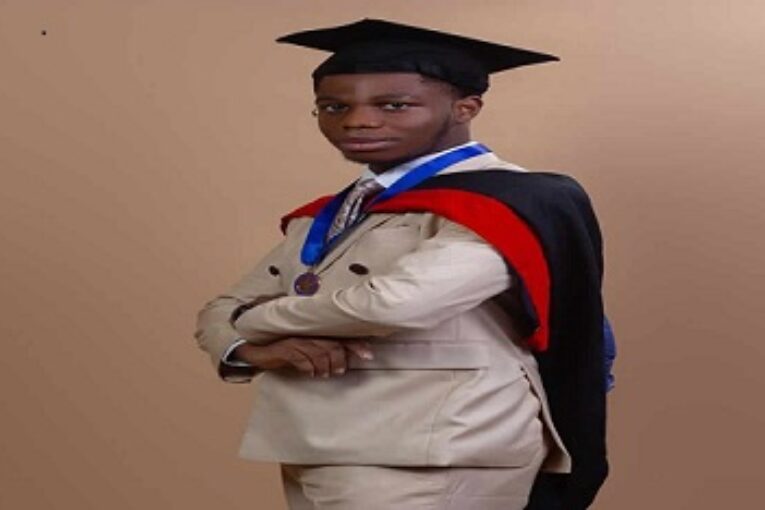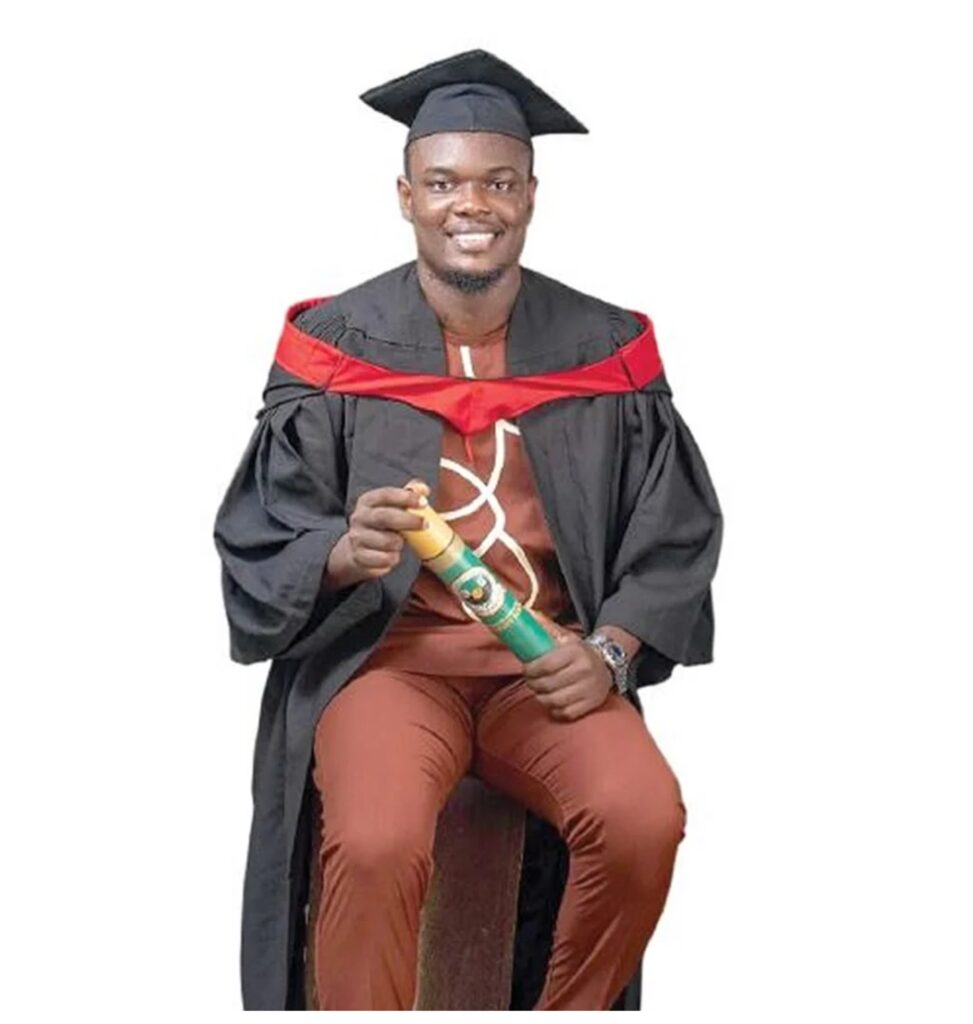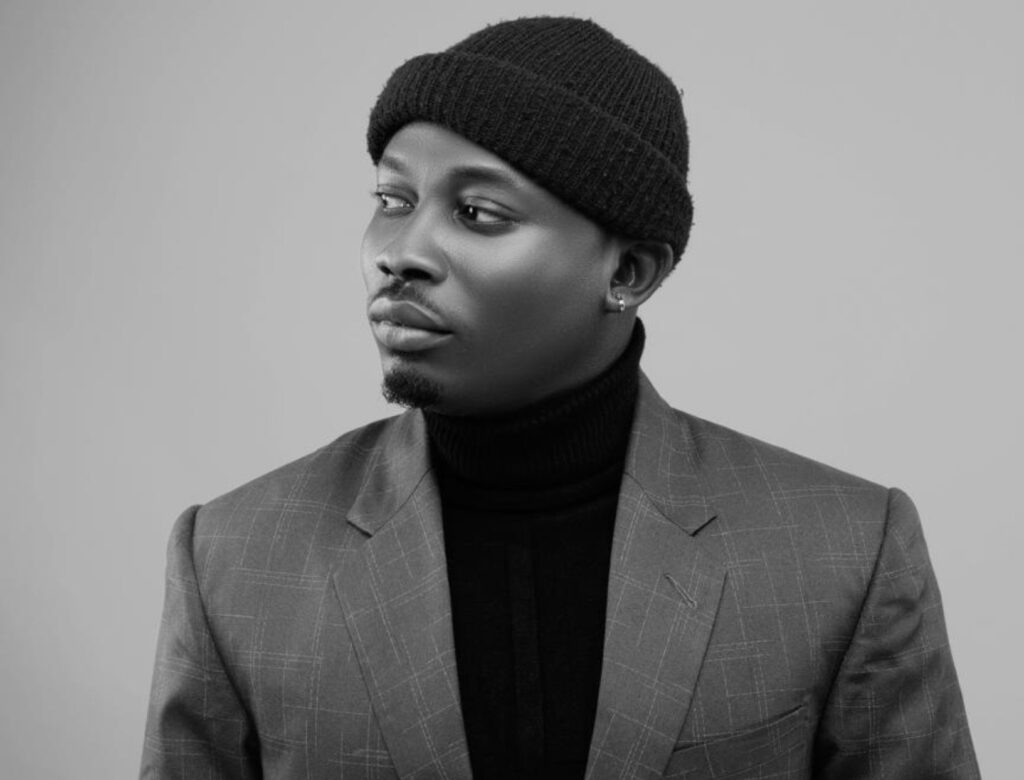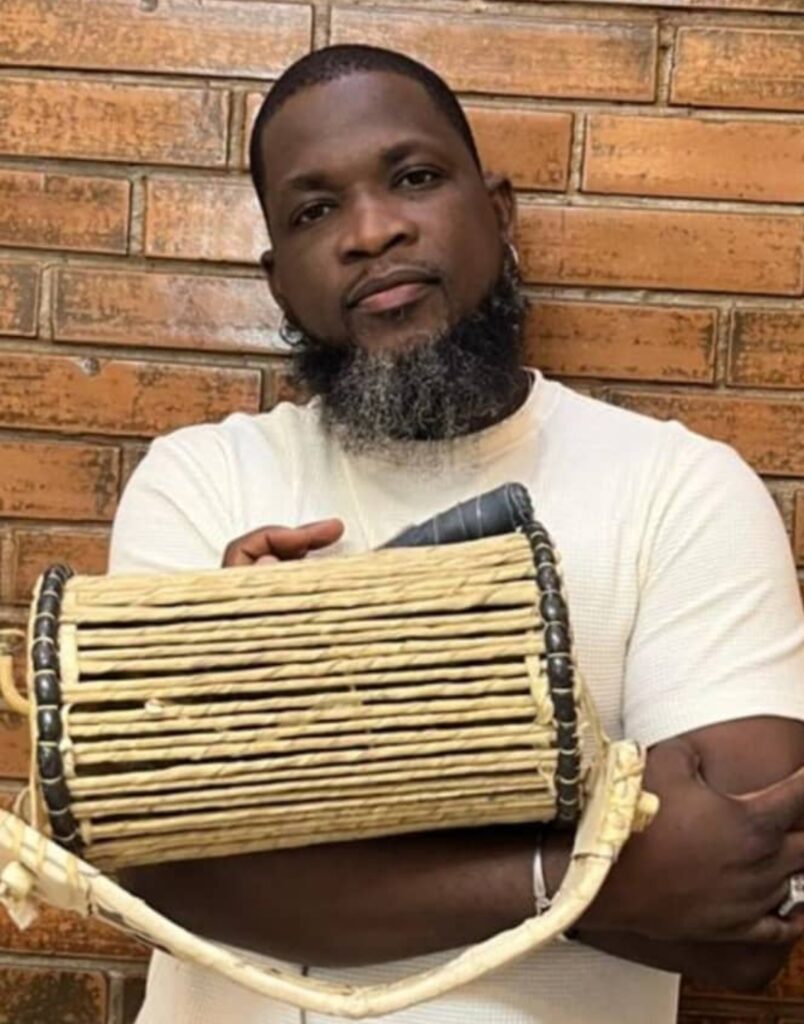
Nsikak-Abasi Ebong, the best graduating student of Babcock University’s School of Computing, tells TEMITOPE ADETUNJI how curiosity and an unyielding pursuit of excellence propelled him to the top of his class
What was your early life and childhood like before university?
I grew up in Akwa Ibom State in a home where curiosity and exploration were encouraged. From a young age, I was fascinated by how things worked; gadgets, simple machines, and even everyday processes around the house.
I often spent hours dismantling toys or trying to figure out how electronics functioned. That curiosity laid the foundation for my love of learning and problem-solving.
Outside academics, I was like any other teenager. I played video games, spent time with friends, and occasionally got into harmless mischief. My parents created a balanced environment; disciplined, yet full of love. My father instilled resilience in me, always reminding me that intelligence alone was not enough; perseverance mattered. My mother encouraged me to try again whenever I failed at even small tasks. This foundation of discipline and support made it easier for me to face challenges later on.
What position do you occupy in your family, and how has that shaped you?
I’m the second of four children, placing me in the middle. That position taught me to look up to my older siblings while guiding my younger ones, naturally shaping me into a mediator, supporter, and connector.
This role helped me develop empathy and responsibility early in life. I learned to understand different perspectives and take accountability for my actions. These qualities carried over into my academics, especially in group projects, leadership roles, and teamwork. Being the middle child taught me to weigh both sides carefully before making decisions.
When did you gain admission into Babcock University, and what influenced your choice of course?
I gained admission in 2021 to study Computer Science. Initially, I wanted to study medicine at the University of Ibadan. However, in my final year of secondary school, a corps member teaching us noticed my aptitude for computing. Around the same time, my elder brother, who studied Computer Science, encouraged me to consider the field seriously.
When medicine didn’t work out, I embraced Computer Science fully. Looking back, it was the right decision.
The course allowed me to explore my problem-solving abilities and create solutions that can impact others. While the switch was unexpected, it shaped the career path I am now passionate about. I graduated on July 27, 2025.
How old were you when you gained admission?
I was 16, and now I’m 20.
What was your first year experience like?
The first year was a mix of excitement and adjustment. I was thrilled to start a new chapter, meet new people, and explore campus life. But independence also came with challenges; managing time, organising assignments, and balancing academics with social interactions.
There were moments of confusion and doubt, especially when I encountered workloads heavier than anything I had experienced before. Gradually, I developed routines that kept me grounded. Time management became essential, and learning to prioritise tasks helped me adapt quickly and reduce stress.
What challenges did you face during your academic journey?
I faced several challenges, including tight deadlines, heavy workloads, and moments of self-doubt, especially when projects didn’t go as planned. At times, balancing coursework with personal projects and other responsibilities felt overwhelming.
I overcame these challenges by breaking large tasks into smaller, manageable goals and focusing on steady progress rather than perfection. My faith also played a significant role, providing perspective and motivation during difficult moments. Most importantly, keeping my goals and purpose in mind helped me remain consistent throughout my academic journey.
Were there times you felt like giving up?
There were moments when the pressure felt nearly unbearable, especially during consecutive deadlines or intense project periods. I sometimes joked with friends about quitting, but deep down, I knew it was never an option.
What kept me going was the realisation that my efforts were building more than just grades; they were shaping my future. The thought of my family’s sacrifices and the opportunities they provided motivated me to keep pushing, even when it got tough.
How did your parents and siblings react when you graduated top of your class?
Their reaction was pure joy. My parents were over the moon; it confirmed that their sacrifices, prayers, and guidance had paid off. My siblings were equally thrilled. They expressed pride and said my achievement motivated them to aim higher in their own pursuits. Seeing their happiness made the honour even more meaningful.
In what ways did your family support you?
My family’s support came in many forms. Financially, they ensured I had the resources to focus on my studies without distraction. Emotionally, they encouraged me through constant check-ins, advice, and prayers. That consistent support gave me the stability and confidence I needed to pursue excellence.
Even when challenges arose, I knew I wasn’t alone. Their guidance and encouragement formed the foundation on which I built my efforts.
Did you have lecturers, mentors, or friends who shaped your journey?
Absolutely! My Head of Department, Dr Seun Ebiesuwa, emphasised looking beyond grades and focusing on preparation for the real world.
Lecturers like Dr Ernest and Dr Izang, along with my project supervisors, Prof Kuyoro and Mr Alfred Udosen, provided mentorship that extended beyond technical knowledge; they taught me patience, problem-solving, and professionalism.
Friends also played a crucial role. Individuals like Ezekiel, Wisdom, and Anjola encouraged me during long nights, supported me in group projects, and offered advice. Even small gestures, such as checking in before exams, contributed significantly to my success.
What specific study habits worked for you?
Consistency was key. I reviewed my notes regularly instead of cramming before exams. Breaking tasks into smaller, manageable goals made them less daunting. I focused on understanding concepts deeply, always asking “why” rather than relying on rote memorisation.
Surrounding myself with motivated peers also helped. We held one another accountable, encouraged each other during low points, and created an environment where diligence and curiosity were valued.
How did you balance academics with side projects, responsibilities, or social life?
Balance required discipline. I maintained a structured routine, allocating time for academics, leadership roles, freelancing, personal projects, and relaxation.
For instance, while excelling academically, I was also active in church leadership, freelancing, and building Acad AI, an AI-driven educational platform. Rather than seeing these activities as distractions, I integrated them with my studies. They complemented each other, keeping me mentally active and practically oriented.
Tell us about Acad AI. What is your vision for it?
Acad AI is an AI-powered platform that helps teachers grade assessments more efficiently and fairly. Traditional grading can take weeks and is often prone to human error or bias. Acad AI reduces this process to minutes, providing quick feedback for students and reliable records for schools.
Beyond grading, the platform can generate questions from lesson notes, ensure secure assessments, and detect malpractice. It began as a research project at Babcock University but has since evolved into a tool with the potential to transform education. Our vision is to make assessment in Africa faster, fairer, and more transparent.
What challenges did you face building Acad AI?
The biggest challenges were training the AI to grade theory answers without bias and ensuring robust security features to prevent malpractice. As first-time founders, we also had to learn how to manage a startup, gather feedback, and iterate on the product quickly.
Overcoming these obstacles required patience, continuous testing, and feedback from real classrooms. It was a steep learning curve, but persistence allowed us to refine the system into a fully functional platform.
Do you think students should start building startups while in school?
Yes, but it requires careful management. The university provides a safe environment to experiment and learn from mistakes without facing the full weight of real-world risks.
For me, balancing academics alongside a startup was demanding, but it offered invaluable real-world experience. Students who choose this path need discipline, strong prioritisation skills, and a clear understanding of their limits.
Were there sacrifices you had to make?
Definitely. I sacrificed sleep, leisure, and social events. While friends attended parties or relaxed, I often spent nights debugging code or studying. Downtime was limited, but those sacrifices felt like investments in the future I wanted to build.
Every challenge and sleepless night reinforced my dedication and taught me how to prioritise effectively.
How did it feel being named Best Graduating Student of the School of Computing?
It was surreal. Holding a certificate with a 4.92 CGPA felt like the culmination of years of perseverance, long nights, and sacrifices. I graduated as the best student in the Department of Computer Science and also as the overall best in the School of Computing, which comprises three departments—Computer Science, Software Engineering, and Information Technology.
The recognition was not just about grades; it symbolised resilience, dedication, and the support of everyone around me, family, lecturers, and friends. The honour motivated me to keep striving for excellence and gave me the confidence to take on bigger challenges, including building solutions like Acad AI.
Have you received any awards or recognitions for your achievements?
Yes. I was recognised as the best student and received two plaques, four certificates, and a tablet in acknowledgement of my efforts.
Looking back, what do you think made the difference for you compared to your peers?
I believe it was my approach to learning. I didn’t focus solely on grades; I sought to understand concepts deeply and apply them to real-world scenarios, such as freelance projects and personal initiatives.
Connecting theory with practice gave my studies meaning and kept me motivated, even during challenging periods. That balance between understanding and application made a noticeable difference.
What advice would you give to students struggling with their academics?
Don’t give up, and avoid constant comparisons with others. Everyone learns differently, so find the methods that work for you. Breaking tasks into smaller, manageable parts, staying consistent, and seeking help from lecturers or peers are key strategies.
Equally important is building a supportive circle. Surround yourself with people who push you to excel and hold you accountable; their influence can make a significant difference.
What would you say to those who believe academics and entrepreneurship can’t go together?
It’s possible, but it requires prioritisation and discipline. You can’t pursue everything at the same time, so understanding your limits is crucial. Entrepreneurship, when managed well, can sharpen your academic focus rather than distract you. The key is balance.
What are your immediate and long-term plans?
Currently, I serve as Lead Backend Developer and Chief Product Officer at Acad AI. My immediate goal is to strengthen the platform’s infrastructure and expand its reach to more schools.
Long-term, I hope to continue innovating in education and technology by creating solutions that make a tangible impact. As Habakkuk 2:3 says, “the vision is yet for an appointed time.” I am confident the future holds more opportunities for growth and impact.
In five to 10 years, where do you see yourself?
I see myself developing technology solutions that address practical challenges, especially in education and healthcare. I also want to mentor young African talents and help them navigate opportunities in tech and entrepreneurship.
The ultimate goal is to build solutions that are accessible, impactful, and transformative, contributing to Africa’s technological and educational progress.
Credit: Punchng




